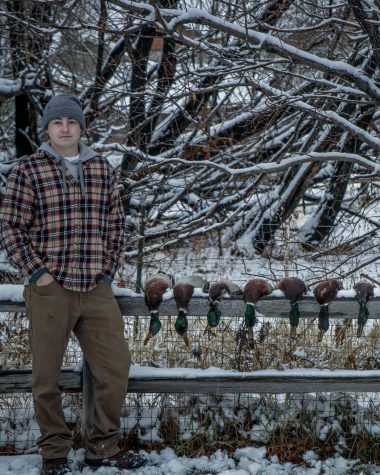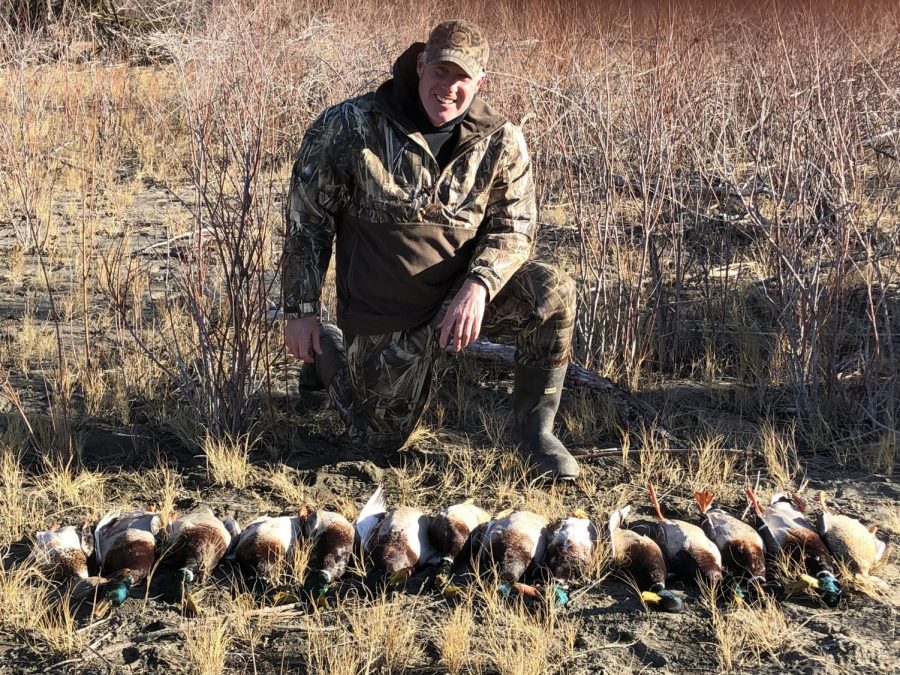Hunters’ tips for success in the field
Torrey Johnson displays his success in hunting ducks in the east side of Washington.
October 27, 2020
Duck hunting season opened Oct. 17 and hunters will now be out in the woods looking to shoot their limit.
With varying weather conditions, traffic in the wilderness and other factors at play, experienced hunters have figured out the best ways to go about hunting the season locally.
Torrey Johnson lives on the Westside but has been traveling east to hunt lakes, reservoirs, ponds and fields for ducks since he was a kid and has sorted out the productive locations from the ones that birds don’t care to land in.
“No matter what you’re hunting, it helps to have water around somewhere. It seems like the spots we end up doing the best in are the ones that have some kind of water around, especially over east,” Johnson said.

While attending WSU, Johnson said he used to make trips to hunt near Moses Lake almost every weekend during duck season.
He said he still makes several trips there during the year even though hunting isn’t as good as it once was.
“There’s definitely more guys out there than there used to be. You know, we used to be able to go all day without hearing a shot and it seems like nowadays you’ll end up with a guy either in your spot when you show up or blasting away right by where you want to go,” Johnson said.
According to Johnson, pressure from other hunters is frustrating and ends up driving the ducks away. He said he tries to spend a portion of his hunting trips looking for new places that other hunters don’t typically go.
Alumnus Alex Habenicht started duck hunting last year and said because he hasn’t been a duck hunter for long, he hasn’t spent enough time in the field to say whether traffic from hunters has increased.
He said he does have ways of avoiding other hunters in order to better his chances, though.
“Scouting locations before the season definitely helps when I’m trying to find good hunting spots that I don’t think people will be able to find. Find areas that are harder, or take longer to get to, and maybe you’ll be able to separate yourself from other hunters,” Habenicht said.
Habenicht said other than the amount of other hunters in the woods, weather has a lot to do with his success on any given hunt.
“I’ll take a cold, windy day 100% of the time. The wind will get the birds moving. If it’s raining really hard and the birds aren’t moving too much, changing location, or simply waiting it out and hoping they show up might be my next move,” Habenicht said.
Habenicht also said the moments just after daylight can be the best of the day, and that although hunting with the sunrise in your face can make things difficult, it’s best to tough it out and squint your eyes if you want to get a shot at the ducks that fly at first light.
Alumnus Cole Barnes recommends Potholes Reservoir for a high chance of a good hunt in the early days of the season as well as later in the year.
“Depending on the birds’ flight path that day and if I’m set up under where they’re flying, I can usually get a least a few ducks on the ground on a decent day at Potholes, so it’s definitely my go-to,” Barnes said.
Barnes said he hunts at Potholes on foot at times, but recommends hunters bring a boat so they can better avoid other hunters and explore the area to find the better hunting spots on the reservoir.
“Potholes is pretty massive and it definitely helps to be able to get out on the water in a boat around there. It’s also pretty deep in spots, so that makes getting birds without a boat pretty sketchy at times,” Barnes said.


